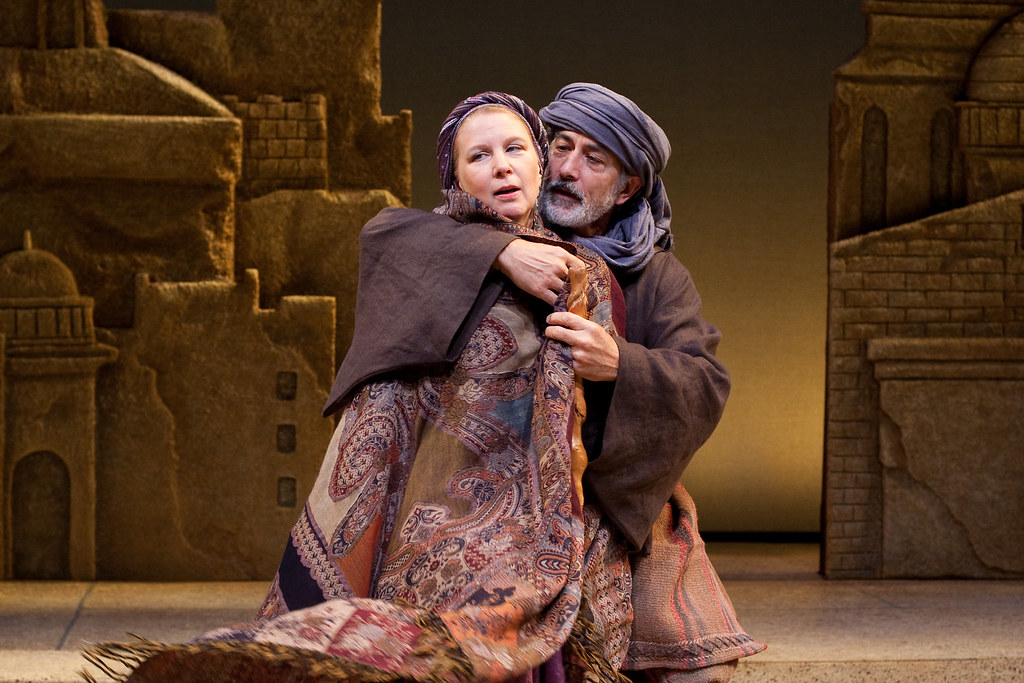Kathryn Petersen & David Strathairn
Gotthold Lessing’s Nathan the Wise (in Edward Kemp’s translation) is an interesting, even curious choice for People’s Light Theater Company (PLTC) just west of us in Malvern, PA, literally down the road from the strip mall where I get my haircuts. Nathan, which completed its run on October 11, was the premier production of PLTC’s 35th season & artistic director Abigail Adams pulled out all the stops. She called in every imaginable chit to get David Strathairn (Good Night and Good Luck; the last two Bourne flicks; several John Sayles films) for the title role, plus Brian Anthony Wilson (detective Vernon Holley on The Wire), OBIE-winner Roslyn Ruff & Saige Thompson (ER, CSI, Cold Case, Without a Trace, Grey’s Anatomy) to augment the usual cast of PLTC actors & other veterans of the local stage. Adams herself directed the play, which was easily the most well-acted, thoroughly accomplished production we’ve seen at People’s Light since Tom Marshall, my family & I first saw Lee Breuer’s production of Gospel at Colonus in 1995 (the capstone to the troupe’s 20th season). All of these actors have a history with PLTC – Thompson got her start here at the age of 6 & is still young enough to get away with playing the teenaged Rachel in this production.
Lessing was one of the founders of German drama, penning Nathan a year before his death in 1780. An early advocate of Shakespeare, Lessing borrows several of the bard’s basic tools – most notably a couple of people are not who they seem & the key test in the narrative, Nathan’s parable of the ring, is something Lessing has borrowed from Boccaccio – and the play itself hovers in an indeterminate space, part comedy, part romance, close to tragedy & clearly an act of political theater, almost agitprop. Jews turn out to be Christians turn out to Muslims & everybody ultimately is family, even as family itself is recast more broadly. The only true villain in the entire piece is the Christian patriarch, which goes some way toward explaining why the play was banned when Lessing (who turned to drama when his critical & philosophic writing ran afoul of the church) first wrote it.
Kemp’s translation was done originally for a 2003 production that performed in modern dress, which partly explains the contemporary tone (Ruff in particular shows superb comic timing with her sarcasm). In the program notes, dramaturg Graham Graves concedes that the Kemp translation “gives a very modern feel to the play, and moves more swiftly than the lengthy original.” A telling change – Recha, the daughter, is now Rachel, a name familiar to our ears. Combined with the less stagey portrayals given by so many of the film-focused cast (Wilson is the notable exception here, along with PLTC veteran Stephen Novelli, who portrays the sultan Saladin), it makes for an odd concoction of a play: medieval setting, enlightenment values, neo-Shakespearen plot & story devices & present-day speech. Nathan the Wise is quite a bit more than just Shakespeare without the language, tho I suspect that may be a strong part of its current appeal.






